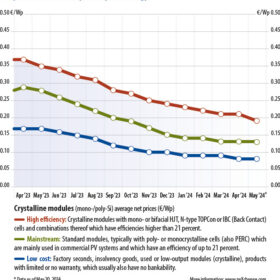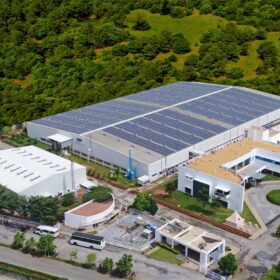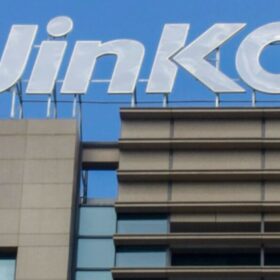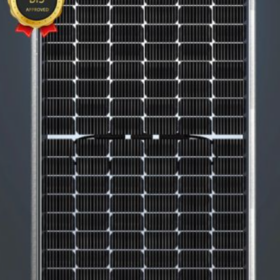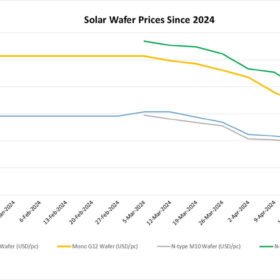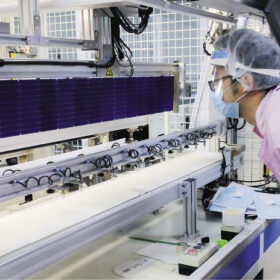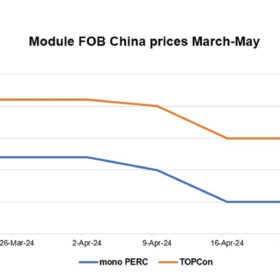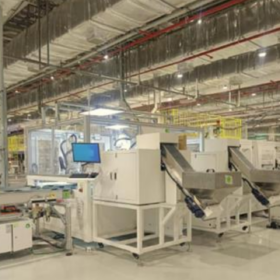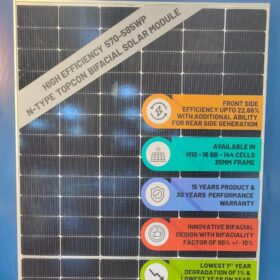Low prices for TOPCon solar panels put pressure on PERC
In May 2024, high-efficiency panels, predominantly glass-glass modules equipped with tunnel oxide passivated contact (TOPCon) cells began to converge on price with mainstream offerings, writes Martin Schachinger, of pvXchange. Production volumes for these negatively-doped, “n-type” cells and modules have been ramped up in China while the increasingly restrictive customs situation in the United States may already be having an impact. For the European market, ever-lower prices for the latest module technology would suggest that demand would continue to rise were it not for a number of disruptive factors.
Gautam Solar to showcase TOPCon glass-glass bifacial panels at Intersolar Europe 2024
Gautam Solar’s TOPCon glass-glass bifacial panels are available in power range of 580 Wp to 590 Wp with maximum efficiency up to 22.84%.
Emmvee secures 795.4 MWp TOPCon DCR module supply order for NTPC Khavda project
Emmvee Group will supply 795.4 MWp of TOPCon DCR modules for NTPC Renewable Energy Ltd’s Khavda solar project in Gujarat.
JinkoSolar hits highest conversion efficiency with 182 mm TOPCon module
JinkoSolar says its 182 mm tunnel oxide passivated contact (TOPCon) solar module has achieved a conversion efficiency of 25.42%.
The future of solar energy: How R&D can bridge the gap between supply and demand
Continued investments in research and development, particularly in areas like advanced battery storage technologies and next-generation solar cell materials, coupled with supportive policies and global collaboration can unlock the full potential of solar energy and pave the way towards a brighter, more sustainable future.
PERC solar products hard to sell due to falling TOPCon module prices
Prices for tunnel oxide passivated contact (TOPCon) solar panels continue to fall. pvXchange.com founder Martin Schachinger explains how this will affect the sale of PV modules based on passivated emitter and rear cell (PERC) cells.
Pahal Solar introduces 595 Wp TOPCon bifacial panel with 23.03% efficiency
India’s Pahal Solar has launched n-type TOPCon glass-backsheet modules in peak power outputs of 560 W to 595 W with front-side efficiencies of 21.68% to 23.03%.
Solar wafer prices decline, sparking concerns over producer survival prospects
In a new weekly update for pv magazine, OPIS, a Dow Jones company, provides a quick look at the main price trends in the global PV industry.
China’s solar dominance set to continue amid price slide
With solar module oversupply triggering a price freefall in 2023 and no recovery in sight, market consolidation, inventory pile-up, technology shifts, and challenges to reshoring PV manufacturing are set to affect all levels of the solar supply chain.
Chinese solar module prices hold steady in a quiet market
In a new weekly update for pv magazine, OPIS, a Dow Jones company, provides a quick look at the main price trends in the global PV industry.
